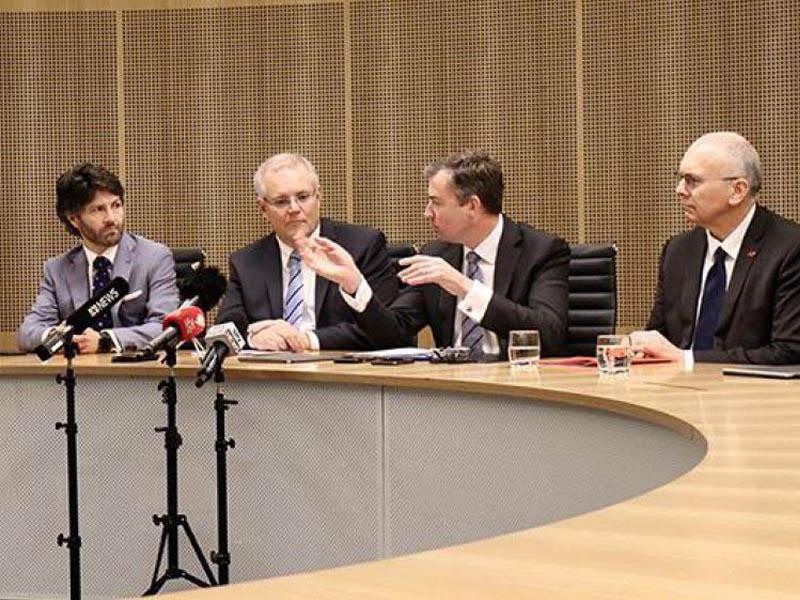Prime Minister Scott Morrison has wasted no time convening a meeting of state and federal digital ministers, with the aim of knock-down obstacles to setting up better arrangements for cross-jurisdictional data sharing and an improved digital identity framework.
The newly-established Australian Digital Council brings together ministers with responsibility for public data and digital transformation programs. It will operates as a COAG-style Ministerial Council, with its own secretariat based within Prime Minister and Cabinet.
Ministerial Councils aid communication and information-sharing between governments. While there have previously been Ministerial Councils covering what had been called the Information and Communications Technology (ICT) sector, the new Council is the first time government has placed digital delivery issues – and in particular data issues – at the heart of ministerial-level contacts.

It should not be surprising that the new Prime Minister has made digital service delivery and the better use of the public data a priority. It is a good sign – for the startup sector in particular – that Mr Morrison is hands-on in this area.
For all of the frustrations of the Digital Transformation Agency’s mission, in the development of public data infrastructure there has been good progress made across different portfolios, and a growing interest among the state’s to harness data assets. This is a point well made by Reinventure co-founder Danny Gilligan in his recent report.
Scott Morrison had been a primary driver of data policy through Treasury, not least via Scott Farrell’s Open Banking Review and the policy measures that have flowed from it, and even the Productivity Commissions inquiry into Data Availability and Use.
Mr Morrison took an early interest in the power of public data, first through the FinTech sector and its power to reduce regulatory cost and more recently in the value of data in improving service delivery.
The policy interest has moved from the industry-specific like regulatory sandboxes to the generalised, like the Consumer Data Right.
For background, data wonks might want to read a speech the former Treasurer made to a G20 meeting of treasury ministers in January 2017 on the topic of digitisation of the finance sector. It is FinTech-focused, but sets out some powerful early thinking and a deep interest.
As for the new Australian Digital Council, its focus on data could not be clearer. So happy days, then.
But there is an element of weirdness too, as there always is. The new Council is chaired by the Minister for Human Services and Digital Transformation Michael Keenan.
Of all the ministers from around the nation that are members of this new council, Mr Keenan is the only one who is not in the Cabinet of the government they represent. Mr Keenan was dropped from the Cabinet – but kept his portfolios – when Scott Morrison became Prime Minister.
Discussions about the minutiae of data sharing policy might not be everyone’s cup of tea, but the first Council meeting of ministers last week at least came to grips with priorities.
They have agreed to meet at least every six months, and to get the ball rolling have committed to get together again within the next three months.
As a first order of business, the ministers agreed on an urgent need to improve collaboration between jurisdictions, and established a working group of senior officials to drive this work. The initial program includes:
- An analysis of all the projects being progressed in each jurisdiction, including timeframes for those projects to support opportunities to collaborate
- Coordination between jurisdictions on the delivery of digital identity opportunities
- Examine how a national data system can be realised, including identifying the current barriers to data sharing between jurisdictions, and opportunities to opt-in to the Commonwealth’s data sharing legislation
- Examine collaboration to drive business simplification between governments
- Collaborate to transform services for people and business focussed around life events, including registering births and deaths.
The council has also acknowledged the need to build trust with the public. This is not straight forward, given the poor record of communications around digital implementations in recent years.
The ministers will seek to build a social licence by developing joint approaches to inform the public and build trust in government-based digital services.
This will be especially important in winning public support for data sharing arrangements. Whatever community and individual benefits that can be derived from valuable public data assets must be spelt-out clearly and ahead of time to avoid a public backlash.
Do you know more? Contact James Riley via Email.

